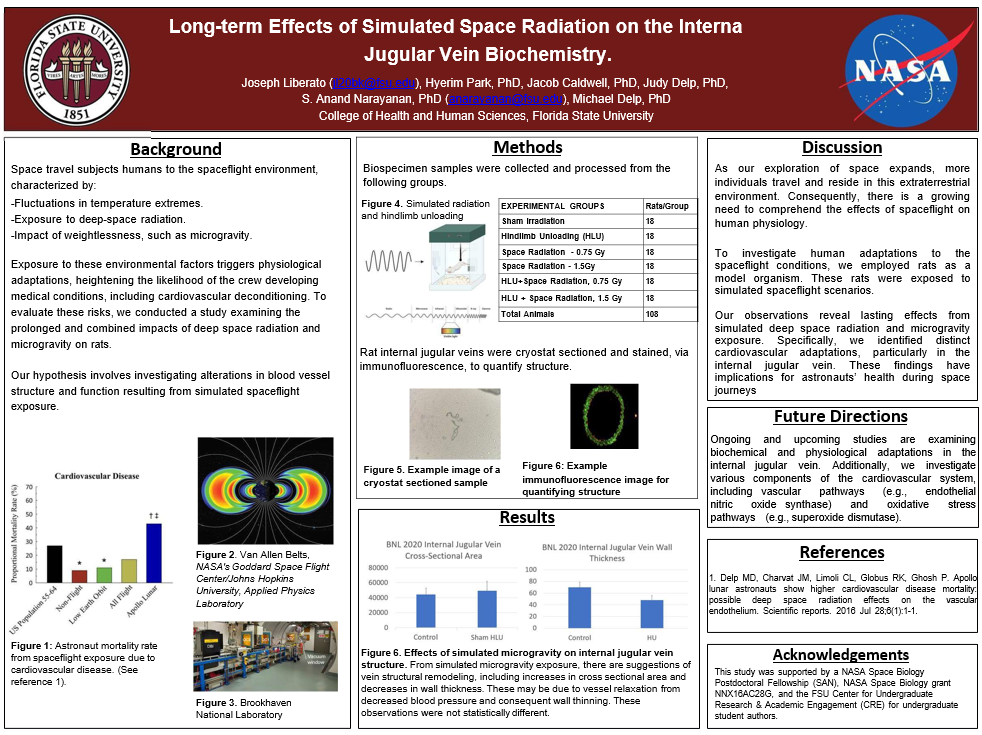Research Symposium
24th annual Undergraduate Research Symposium, April 3, 2024
Joseph Liberato Poster Session 2: 10:45 am - 11:45 am/428
BIO
As an aspiring engineer with roots in Colombia, my academic and professional journey is actively driven by a passion for space exploration and development. Having moved to the U.S. at the age of 15, I found my calling in space medicine during my high school years in South Florida. Currently, as a biomedical engineering student at Florida State University, I am engaged in pivotal bioastronautics research. This work dovetails with my role as a leader in Students for the Exploration and Development of Space (SEDS) at FAMU-FSU, reflecting my ongoing commitment to advancing the field. Together, we leverage the principles of space exploration to foster unity across diverse academic disciplines, shaping our collective human experience through strategic space projects and research endeavors.
The Long-Term Effects of Simulated Space Radiation on the Internal Jugular Vein Biochemistry
Authors: Joseph Liberato, Sunny A. Narayanan, Ph.D.Student Major: Biomedical Engineering
Mentor: Sunny A. Narayanan, Ph.D.
Mentor's Department: Department of Health, Nutrition, and Food Sciences Mentor's College: College of Health and Human Sciences Co-Presenters:
Abstract
When astronauts travel into space, they experience a unique environment, which includes weightlessness (e.g. microgravity) and radiation exposure that leads to diverse physiological adaptations. These adaptations affect the cardiovascular system, including the internal jugular vein (IJV), a major conduit for cerebral venous outflow, and which is also involved with maintaining and regulating brain blood supply. Recent observations from spaceflight missions suggest the IJV is susceptible to spaceflight-induced adaptations. To investigate the mechanisms and specific effects of microgravity and/or radiation on the IJV, we conducted a study examining the long-term effects of single and combined simulated deep-space radiation and microgravity exposure on rats. Our study aimed to assess changes in IJV structure and function, as well as biochemical pathway alterations that may be caused potentially caused by simulated spaceflight exposure. IJV samples were collected and processed for immunofluorescence protein analysis using cryostat sectioning. The findings from this study will contribute to our overall understanding of cardiovascular adaptations associated with spaceflight that are occurring with our astronauts.
Keywords: space medicine, health, cardiovascular, vein, bioastronautics


